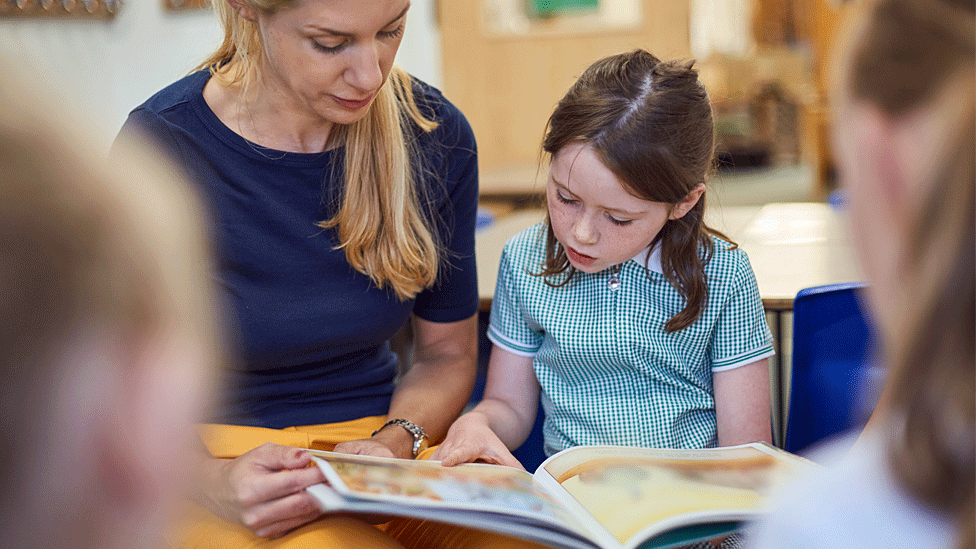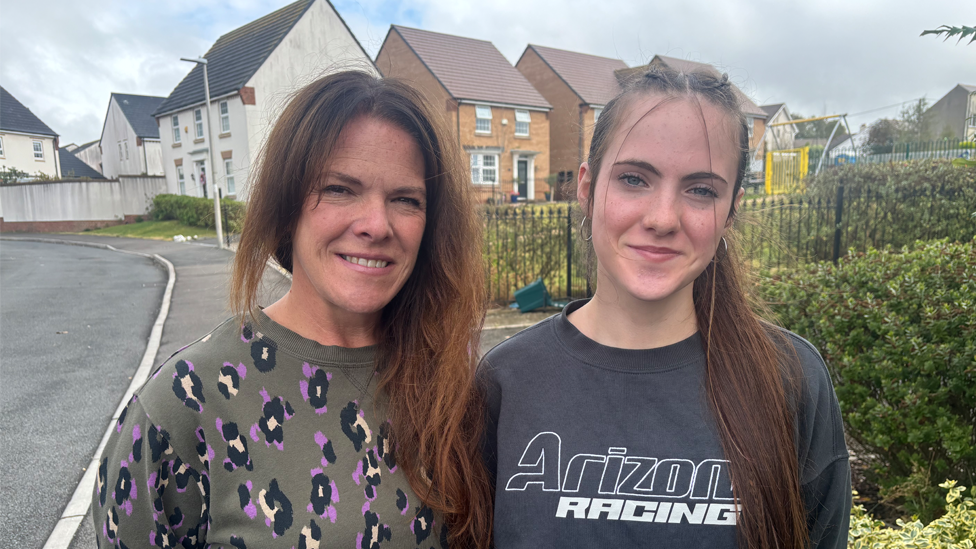'Clear guidance' call on teaching reading in class

The Welsh government said recent results showed reading standards were improving
- Published
Parents in Wales "should be up in arms" about standards in teaching young children to read in schools, according to an education specialist.
Welsh 15-year-olds scored lower in tests than pupils in other home nations, including in England where youngsters are taught using systematic synthetic phonics (SSP), external, matching letters and sounds.
Fin Wilson said there were "lots of different types of phonics" but Welsh teachers weren't being advised to follow the "most effective", like SSP.
The Welsh government said recent results showed standards were improving and the education secretary had been "clear that phonics is central to teaching reading and we expect to see it in all schools".
But Ms Wilson, director of Impact Wales, an education consultancy, said teachers and schools were "working so hard to help children to read, but the problem is not every teacher knows the best way to do it, and that is from the policy aspect".
"They're not being given the guidance that they need to understand how to do it effectively," she told BBC Radio Wales' Sunday Supplement.
Children's reading standards 'a lottery' in Wales
- Published18 July 2024
Pupil reading standards fall since Covid
- Published23 November 2023
"They're very, very busy, and children obviously are working hard to read as well, but it's just not working."
She said ministers were "not making it clear" to teachers that SSP was considered the "most effective type of phonics" .
"It's the match between the letter, or groups of letters, and the sound that they represent, that is reading and you have to decode that.
"It's only very recently that Welsh government has admitted that multi-cueing, external, looking at pictures or guessing, is not effective.
"You know, parents should be up in arms about what's going on in schools at the moment in terms of reading."
The Welsh government said it was "seeing improvements in English and Welsh reading, with attainment levels better" than the last international Pisa results.
BBC Radio Wales' Sunday Supplement
Rayner resignation causes a reshuffle, new Green leader, Wales' literacy problem and Reform conference
"We believe personalised, tailored assessments are better for each child and we are working with experts and the profession to develop age-related expectations in literacy," it said.
"Our literacy support is based upon the latest evidence and co-constructed with teachers, and other experts and practitioners.
"Earlier this year we updated our guidance on reading, external, with extra support for literacy in schools."
Related topics
Related stories
- Published3 September

- Published4 September
